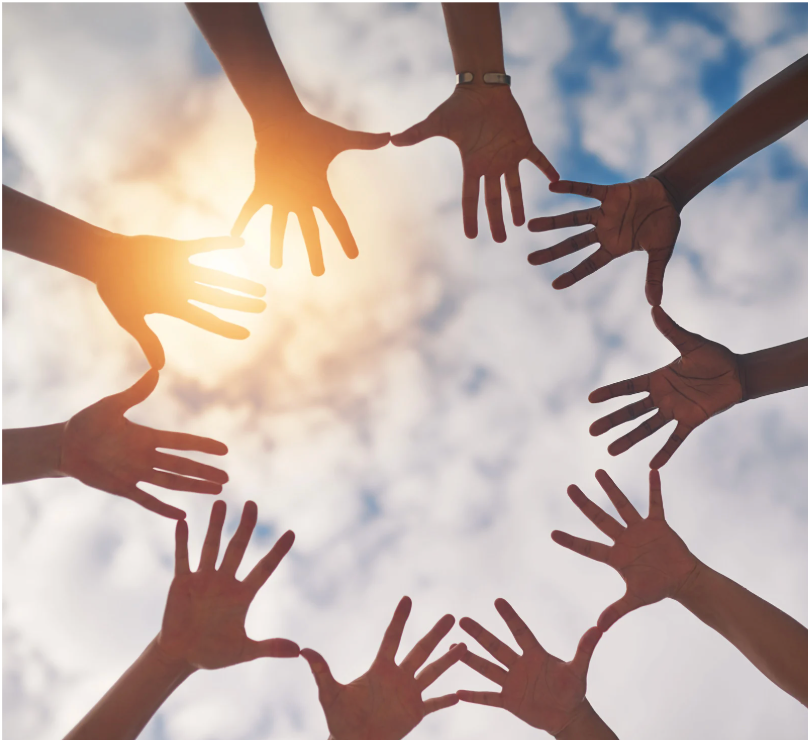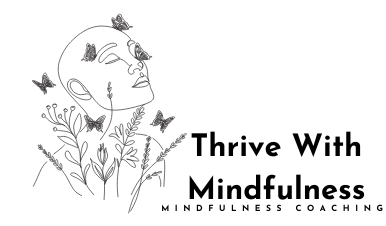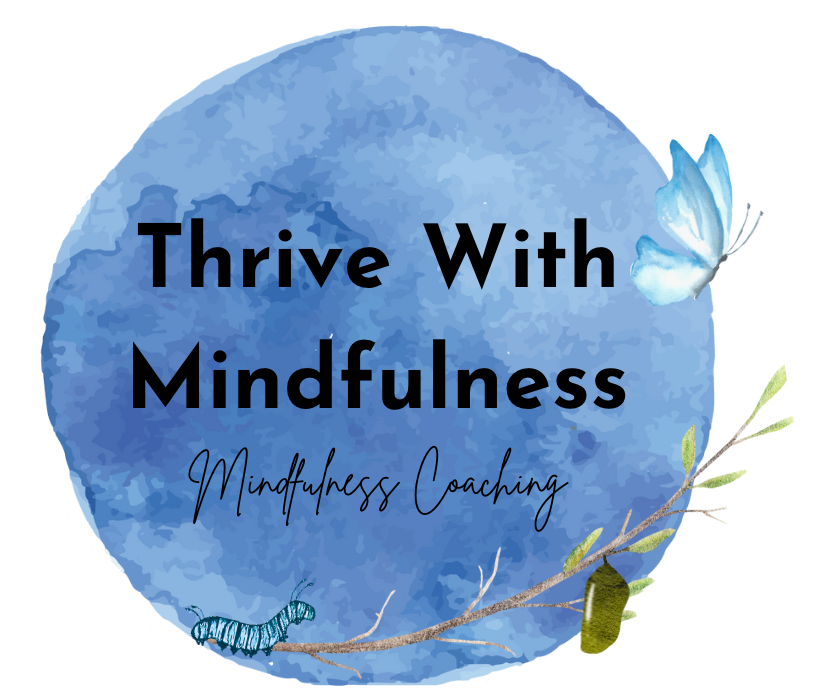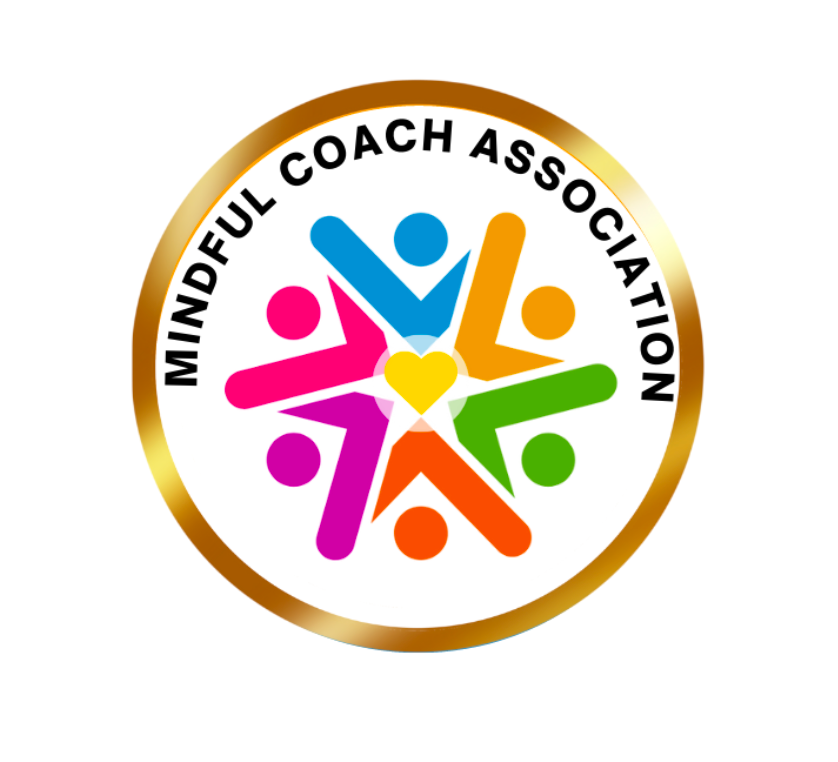Upcoming Events
We value genuine connection !
To sign up for an event, please message us via the
Contact
page.
| Dates | Event |
|---|
| May 6, 2025 | Relax, Connect, & Thrive | Monthly Meet Up |
| - | ||
| March 21, 2025 | After Work English - 6 Week Series | English Conversation for our German Community |

Why Happiness Isn’t Just About Feeling Great All the Time March 20 marks the International Day of Happiness, a day that prompts us to reflect on what happiness truly means. Many of us equate happiness with constant joy, success, or positive experiences. But is that really the full picture? True happiness isn’t about avoiding difficult emotions or chasing an endless stream of feel-good moments. Instead, it’s about emotional resilience, self-awareness, and a deep understanding of how our emotions guide us toward what matters most. This month, let’s take a deeper dive into happiness—what it is, what it isn’t, and how mindfulness can help us cultivate a more sustainable sense of well-being. What Are Emotions Really For? At their core, emotions are not just fleeting feelings; they are information. Neuroscience shows that our emotions are shaped by our brain, body, environment, and past experiences. They serve as an internal guidance system, helping us navigate life. Let’s break it down: Your interpretation – Every emotion starts with how your mind processes an event. Two people watching the same scary movie may have completely different reactions—one may feel excitement, while the other experiences fear. The stimulus is the same, but the interpretation is personal. Your body’s response – Emotions manifest physically. Fear may cause a racing heart, while joy can bring a sense of lightness. These physiological reactions are part of how emotions prepare us for action. Your behavior – Based on your interpretation and bodily response, emotions influence how you react—whether you laugh, cry, withdraw, or take action. These mechanisms evolved for a reason. Emotions help us make decisions, protect ourselves, and connect with others. They tell us what we need more of—and what to steer away from. Yet, in modern life, we often suppress emotions rather than listening to them. Many of us see difficult emotions as problems to be fixed rather than valuable messages. This disconnect can leave us feeling lost, unfulfilled, or constantly chasing external sources of happiness rather than cultivating it from within. The Mindful Path to Authentic Happiness So, if emotions are data points guiding us through life, what does that mean for happiness? It means that happiness isn’t about eliminating negative emotions but understanding and integrating them. Here’s how mindfulness can help: Recognizing emotions without judgment – Mindfulness teaches us to acknowledge our emotions as they are, rather than labeling them as “good” or “bad.” Understanding what emotions are communicating – Fear may be signaling a need for safety. Sadness may be pointing to something that needs healing. Happiness itself can serve as a guide toward what nourishes us. Responding intentionally rather than reacting impulsively – When we cultivate self-awareness, we learn to make conscious choices rather than being driven by emotional highs and lows. By incorporating mindfulness, we gain the ability to sit with all emotions—not just the pleasant ones—and extract the wisdom they offer. This deepens our capacity for joy, because rather than resisting discomfort, we learn to navigate it with self-compassion and clarity. How to Cultivate a Deeper, More Lasting Happiness Embrace the full range of emotions – Avoiding discomfort doesn’t create happiness; understanding it does. Accepting all emotions, even the difficult ones, allows for true well-being. Stay present – Happiness isn’t just in the big milestones; it’s in the small moments—savoring a warm cup of tea, a meaningful conversation, or the feel of sunshine on your skin. Prioritize meaningful connections – True happiness is deeply connected to relationships. Expressing emotions and fostering connections strengthens our sense of belonging. Align with what truly matters – When we recognize emotions as signals rather than obstacles, we can take action toward what fulfills us, whether that’s creativity, community, or self-growth. Expand your emotional vocabulary – Understanding subtle differences between emotions (such as frustration vs. disappointment) helps us process them more effectively. Tools like the Feelings Wheel can be powerful in deepening self-awareness. Practice self-compassion – Happiness isn’t about perfection. It’s about allowing yourself to be human, embracing the highs and lows, and treating yourself with kindness in every step of your journey. Looking Ahead: Exploring Happiness Throughout March Throughout this month, I’ll be sharing deeper insights into the science of happiness, mindfulness techniques, and practical ways to cultivate emotional balance. If you're already on my email list, you know that it's where I share all of my resources first. And sometimes, it's the only place I share them. Stay tuned, for downloadable resources and reflective exercises to help you on this journey! 👉 Not on my email list yet? Here's the link to sign up: What does happiness mean to you? Drop a comment and share your thoughts! #Mindfulness #EmotionalWellness #Happiness #MentalHealth #SelfAwareness #PersonalGrowth
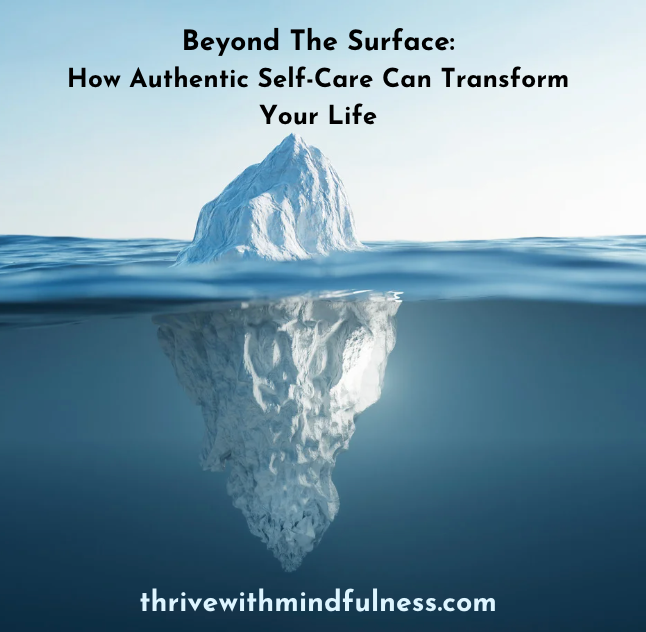
Introduction Self-care is more than spa days and candles. Discover mindful self-care practices that truly transform your life. When we hear the term “self-care,” it often conjures images of indulgence—bubble baths, spa days, or luxurious treats. While there’s nothing wrong with a relaxing bath or treating yourself, true self-care goes much deeper. It’s about aligning with your authentic self, letting go of what no longer serves you, and creating space for growth. In a world that feels more uncertain by the day, prioritizing emotional well-being isn’t just a luxury— it’s essential . With so much happening around us, taking care of our mental and emotional health is key to maintaining balance, resilience, and inner peace. Think of it this way: if a firefighter showed up to put out a fire but was completely exhausted and unfocused, they wouldn’t be able to do their job properly. The same goes for us—we can’t show up fully for ourselves or others if we’re running on empty. Real self-care nourishes your mind, body, and soul. It’s not about perfection; it’s about progress, self-acceptance, and honoring your unique needs. Let’s explore simple ways to practice self-care and bring more balance into your daily life: Let Go of the Past Sometimes, the biggest act of self-care is giving yourself permission to let go. Old stories, lingering doubts, and patterns of behavior can weigh you down more than you realize. Ask yourself: What am I holding onto that no longer serves me? How would it feel to release that weight? This might look like journaling through unresolved emotions, creating a symbolic ritual to mark the end of a chapter, or even just speaking your truth in a trusted space. Releasing the past clears the path for a more intentional and empowered present. Honor Your Unique Needs Self-care isn’t a one-size-fits-all practice. What restores someone else may not resonate with you, and that’s okay. True self-care means tuning into your own rhythm and honoring your unique needs. Maybe your soul craves quiet time with a book. Maybe you need to move your body with a brisk walk in nature. Or perhaps it’s simply sitting in stillness and breathing deeply. If you’re not sure where to start, try this: place a hand on your heart, take a deep breath, and ask yourself, "What do I need right now?" Repeat this process as many times as you need. Allow yourself to listen deeply to what your body and soul are telling you. The answer may surprise you, but when you find it, you’ll know. Find Strength in Community We weren’t meant to navigate life alone. A truly transformative act of self-care is finding and nurturing connections with others who uplift and support you. Being part of a supportive community isn’t just comforting—it’s essential for mental well-being. It reminds us that we’re not alone in our struggles, joys, or growth. Whether it’s a close-knit group of friends, a mindfulness meetup, or a shared passion project, surrounding yourself with the right people can be deeply healing. Practicing mindful connection with others strengthens emotional resilience and allows us to show up as our best selves. Small Steps to Get Started Today If you’re feeling overwhelmed and unsure where to begin, here are three simple self-care practices you can start right now to reduce stress and bring more balance into your life: Pause and Breathe: Take a few deep breaths, letting your exhale be slightly longer than your inhale. This helps calm your nervous system and bring you back to the present moment. Check in with Yourself: Ask yourself, "How am I really feeling right now?" Acknowledging your emotions without judgment is a powerful act of self-care and self-awareness. Move Your Body: A short walk, gentle stretching, or even just standing up and rolling your shoulders can release tension and shift your energy, helping you feel more grounded and refreshed. Self-care isn’t about adding more to your to-do list. It’s about making space for what truly nourishes you. (And that means reducing the number of things on the to-do list!) If you’d like more inspiration , you can find mindfulness tips and supportive practices over on my website and Instagram . What’s one small way you can take care of yourself today? Join our next virtual meetup! Check our Upcoming Events page to register.
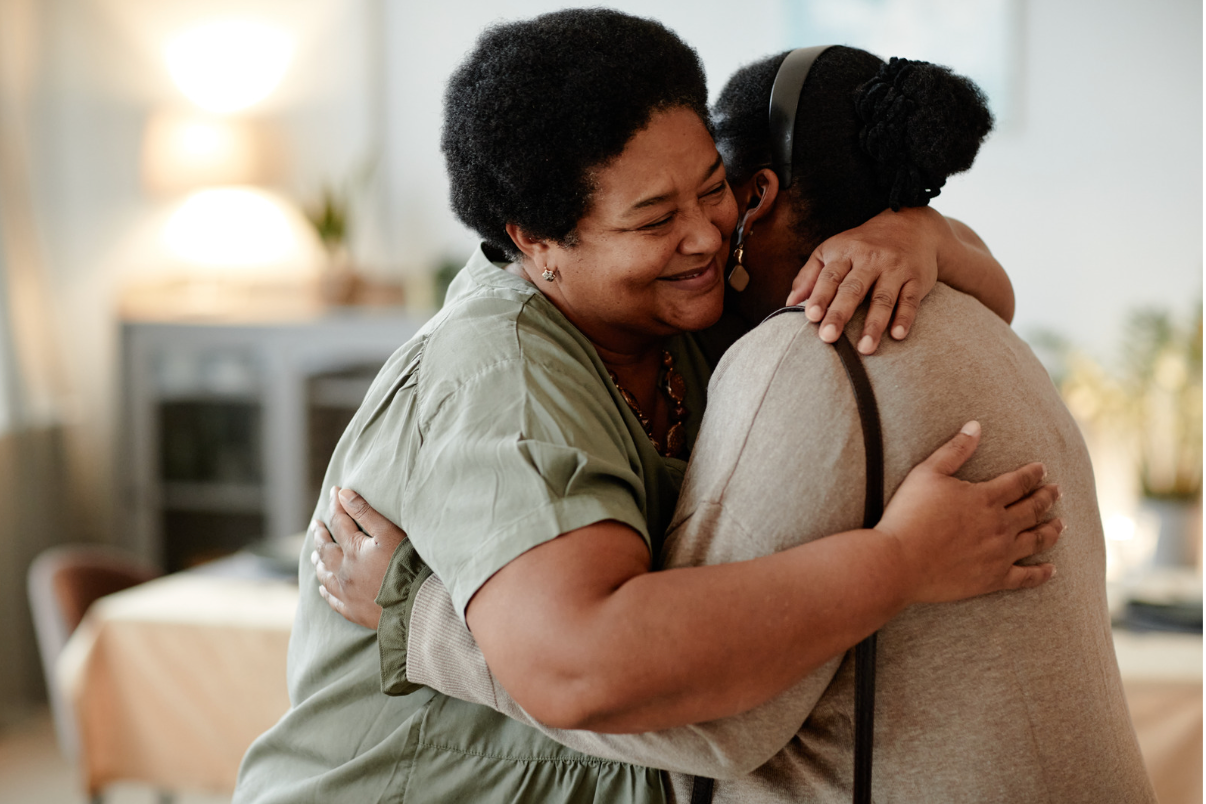
Introduction In today's fast-paced world, finding inner peace and cultivating genuine relationships is more important than ever. This month, let's explore the transformative power of acceptance. The Power of Acceptance “Acceptance of one’s life has nothing to do with resignation; it does not mean running away from the struggle. On the contrary, it means accepting it as it comes… To accept is to say yes to life in its entirety.” - Paul Tournier This quote perfectly captures our theme for this month: Acceptance. Acceptance is one of the 4 A's. The other A's are Attention, Affection, and Appreciation. Over the past several weeks, we've delved into each of these principles, learning how they help us feel safe, confident, and secure in our relationships. These are essential elements for building healthy friendships and family bonds. The Essence of Acceptance Think of a relationship that feels effortless, where you can just relax and be yourself, knowing you are loved no matter what. This is the essence of acceptance. When we feel accepted, we can relax and just be ourselves, knowing that we are safe and loved—faults and all. Three Levels of Acceptance There are three levels of acceptance we need to be aware of: Acceptance of the Present Moment: We can accept that this moment is perfect, pure, and whole, and that every moment leading up to this one was exactly as it was meant to be. Imagine this moment as the magnificent culmination of all our choices, experiences, and every second that has ticked by this year. It couldn’t be any other way. Acceptance of Ourselves: We can accept that we are divine beings living in human bodies for the span of a lifetime. We have made choices and decisions throughout our lives from our highest level of consciousness at the time. Even though there are choices we may regret, they are carved in stone. We must accept them, forgive ourselves, and make better choices in the future. Acceptance of Others: We can accept others for who they are—not as we wish they would be. This means allowing people’s differences, quirks, and unique vibrations to just be, without trying to fit them into our box of how the world is supposed to be. Allowing others to be as they are is a profound act of acceptance. The Importance of Acceptance in Today's World Understanding these three levels of acceptance could keep us busy for several lifetimes. However, understanding the essence of acceptance is of utmost importance, especially in our current world situation where conflicts, unrest, and widespread discomfort are on the rise. Moving Forward with Acceptance I invite you to integrate this understanding into your life. Recognize that every moment of the past is carved in stone. To evolve our lives, improve our situation, or find deeper fulfillment, we must own the present moment. Level two is where many of us get stuck. We are our toughest critics, remembering all the moments where we felt less than perfect. However, in those moments, we did our best from our own level of consciousness. We didn’t have access to a crystal ball to foresee consequences, and perhaps we didn’t fully explore the depth of our actions. Choices: Self-Blame or Self-Acceptance So we have two clear choices: Blame Ourselves: Beat ourselves up for not being clairvoyant and diminish our happiness by continuously blaming ourselves. Accept and Learn: Accept the past as a lesson so we can make better choices and find deeper fulfillment in life. Blaming ourselves is both unnecessary and harsh. It uses up all our energy and doesn’t help us in any way. In all areas of life, the ability to step beyond the moment of blame and accept our individual missteps separates the winners from the losers. The ability to accept that we did our best at the time allows us to step out of the past and into the present, which is rich, fresh, and filled with possibilities. Those stuck in self-pity or finger-pointing are trapped in the past. They will stay there because they refuse to accept what is set in concrete. One example of this is that we can keep complaining about the rain or accept that it’s raining, find an umbrella, and dance in the cleansing fall. When we accept our decisions, we can move forward and make new, proud, exciting, restorative choices. In the words of davidji, "We get to choose. We are choice-making beings. No one can ever take that away from us—not even ourselves. We just need a little reminder now and then." Wishing you a month of many conscious decisions and intentional living, Traci To support your journey, I'm committed to making mindfulness accessible to all women. Thrive With Mindfulness offers various ways to help you connect, grow, and thrive: Virtual Monthly Meetups: Complimentary sessions that provide a heart-centered, safe space for women to connect, bond, and share their experiences. Group Coaching: Join a community of like-minded women to explore mindfulness and support each other’s growth. 1:1 Coaching: Personalized sessions tailored to your individual needs, helping you navigate your unique path with mindfulness. In-Person Events: Connect with others in a more intimate setting, fostering deeper relationships and personal growth. Online, On-Demand Courses: Access mindfulness practices and teachings at your own pace, from the comfort of your home. Join our next virtual meetup on August 6th from 7PM-8PM CET , where we'll discuss what it means to live with intention. This complimentary meetup is designed to provide a supportive environment for women to genuinely connect and thrive through mindfulness. If you'd like to join, please email me at traci@thrivewithmindfulness.com to register.
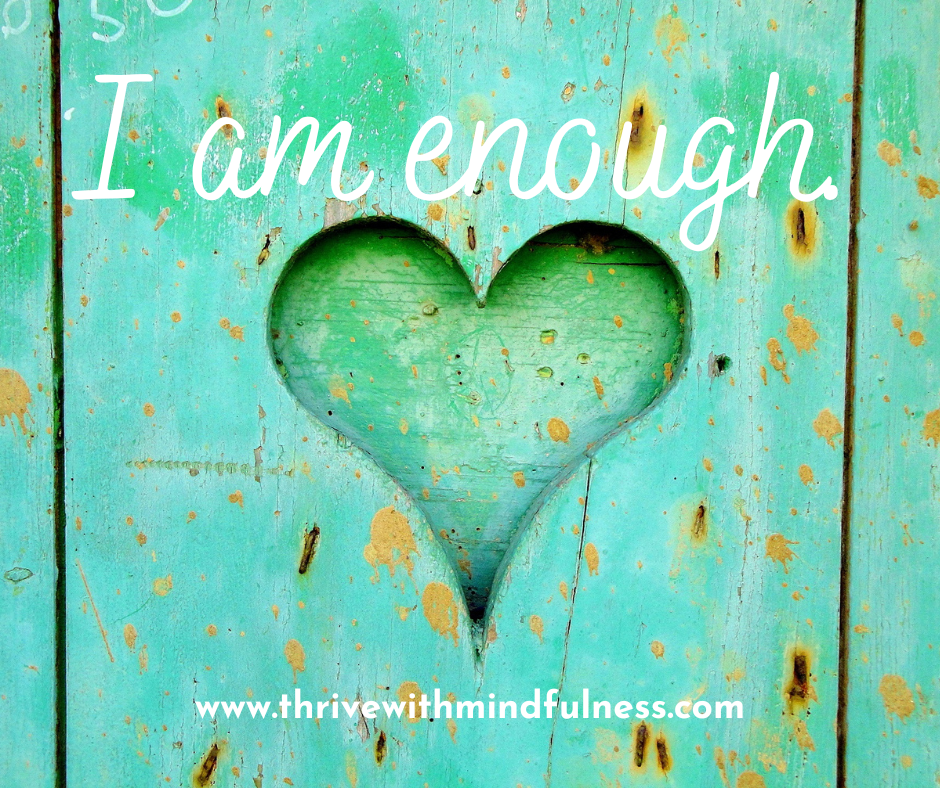
Introduction In today's fast-paced world, finding inner peace and cultivating genuine relationships is more important than ever. This month, let's explore the transformative power of acceptance. The Power of Acceptance “Acceptance of one’s life has nothing to do with resignation; it does not mean running away from the struggle. On the contrary, it means accepting it as it comes… To accept is to say yes to life in its entirety.” - Paul Tournier This quote perfectly captures our theme for this month: Acceptance. Acceptance is one of the 4 A's. The other A's are Attention, Affection, and Appreciation. Over the past several weeks, we've delved into each of these principles, learning how they help us feel safe, confident, and secure in our relationships. These are essential elements for building healthy friendships and family bonds. The Essence of Acceptance Think of a relationship that feels effortless, where you can just relax and be yourself, knowing you are loved no matter what. This is the essence of acceptance. When we feel accepted, we can relax and just be ourselves, knowing that we are safe and loved—faults and all. Three Levels of Acceptance There are three levels of acceptance we need to be aware of: Acceptance of the Present Moment: We can accept that this moment is perfect, pure, and whole, and that every moment leading up to this one was exactly as it was meant to be. Imagine this moment as the magnificent culmination of all our choices, experiences, and every second that has ticked by this year. It couldn’t be any other way. Acceptance of Ourselves: We can accept that we are divine beings living in human bodies for the span of a lifetime. We have made choices and decisions throughout our lives from our highest level of consciousness at the time. Even though there are choices we may regret, they are carved in stone. We must accept them, forgive ourselves, and make better choices in the future. Acceptance of Others: We can accept others for who they are—not as we wish they would be. This means allowing people’s differences, quirks, and unique vibrations to just be, without trying to fit them into our box of how the world is supposed to be. Allowing others to be as they are is a profound act of acceptance. The Importance of Acceptance in Today's World Understanding these three levels of acceptance could keep us busy for several lifetimes. However, understanding the essence of acceptance is of utmost importance, especially in our current world situation where conflicts, unrest, and widespread discomfort are on the rise. Moving Forward with Acceptance I invite you to integrate this understanding into your life. Recognize that every moment of the past is carved in stone. To evolve our lives, improve our situation, or find deeper fulfillment, we must own the present moment. Level two is where many of us get stuck. We are our toughest critics, remembering all the moments where we felt less than perfect. However, in those moments, we did our best from our own level of consciousness. We didn’t have access to a crystal ball to foresee consequences, and perhaps we didn’t fully explore the depth of our actions. Choices: Self-Blame or Self-Acceptance So we have two clear choices: Blame Ourselves: Beat ourselves up for not being clairvoyant and diminish our happiness by continuously blaming ourselves. Accept and Learn: Accept the past as a lesson so we can make better choices and find deeper fulfillment in life. Blaming ourselves is both unnecessary and harsh. It uses up all our energy and doesn’t help us in any way. In all areas of life, the ability to step beyond the moment of blame and accept our individual missteps separates the winners from the losers. The ability to accept that we did our best at the time allows us to step out of the past and into the present, which is rich, fresh, and filled with possibilities. Those stuck in self-pity or finger-pointing are trapped in the past. They will stay there because they refuse to accept what is set in concrete. One example of this is that we can keep complaining about the rain or accept that it’s raining, find an umbrella, and dance in the cleansing fall. When we accept our decisions, we can move forward and make new, proud, exciting, restorative choices. In the words of davidji, "We get to choose. We are choice-making beings. No one can ever take that away from us—not even ourselves. We just need a little reminder now and then." Wishing you a month of many conscious decisions and intentional living, Traci To support your journey, I'm committed to making mindfulness accessible to all women. Thrive With Mindfulness offers various ways to help you connect, grow, and thrive: Virtual Monthly Meetups: Complimentary sessions that provide a heart-centered, safe space for women to connect, bond, and share their experiences. Group Coaching: Join a community of like-minded women to explore mindfulness and support each other’s growth. 1:1 Coaching: Personalized sessions tailored to your individual needs, helping you navigate your unique path with mindfulness. In-Person Events: Connect with others in a more intimate setting, fostering deeper relationships and personal growth. Online, On-Demand Courses: Access mindfulness practices and teachings at your own pace, from the comfort of your home. Join our next virtual meetup on August 6th from 7PM-8PM CET , where we'll discuss what it means to live with intention. This complimentary meetup is designed to provide a supportive environment for women to genuinely connect and thrive through mindfulness. If you'd like to join, please email me at traci@thrivewithmindfulness.com to register.
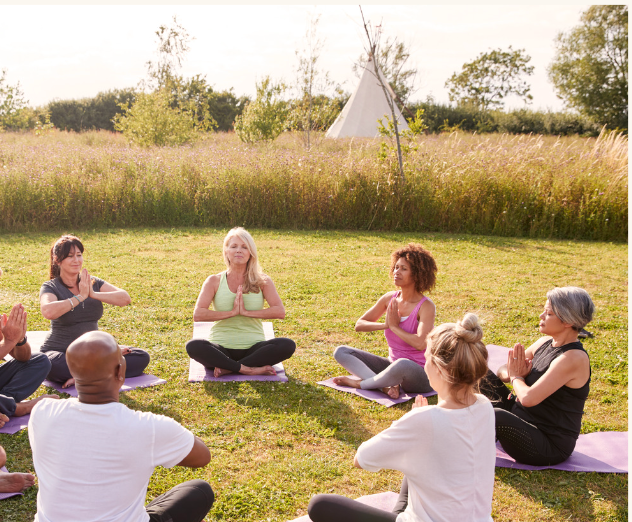
Introduction Last month, I took an unexpected pause to be with my dad during his final days in hospice. His passing reminded me that deep emotional pain reflects deep love. It was a time of profound reflection, and the experience has deepened my understanding of the importance of living with intention and connection. In my garden, I recalled the vibrance, humor, joy, and wisdom he brought into my life. This time of reflection also brought me back to the principles of the 4 A's—Attention, Affection, Appreciation, and Acceptance—which I wrote about in May. These principles get to the core of what it means to live life fully, with intention, love, and joy. The Importance of Connection for Wellbeing My dad didn’t know about the 4 A's, and I'm pretty sure he wouldn't have been able to tell you what mindfulness was all about. Yet he understood that connection is everything. This realization made me more determined than ever to help others cultivate these vital connections in their own lives. This month , I invite you to make a concerted effort to show all the people you care deeply about how much you love and appreciate them. Focus on the quality of the connection you're building with them. Life is short, and it's vital to savor every moment with intention. To support this journey, I'm committed to making mindfulness accessible to all women. Thrive With Mindfulness offers various ways to help you connect, grow, and thrive: Virtual Monthly Meetups: Complimentary sessions that provide a heart-centered, safe space for women to connect, bond, and share their experiences. Group Coaching: Join a community of like-minded women to explore mindfulness and support each other’s growth. 1:1 Coaching: Personalized sessions tailored to your individual needs, helping you navigate your unique path with mindfulness. In-Person Events: Connect with others in a more intimate setting, fostering deeper relationships and personal growth. Online, On-Demand Courses: Access mindfulness practices and teachings at your own pace, from the comfort of your home. Join our next virtual meetup! Check our Upcoming Events page for the next Relax, Connect, & Thrive Women's Meetup. By prioritizing self-care and mindfulness, we can transform our lives and set a positive example for those around us. Let's make a daily commitment to live with intention, embrace our connections, and appreciate the love that surrounds us.

Introduction In our fast-paced world, the concept of connection is often glossed over, yet it remains a cornerstone of our psychological and emotional wellbeing. Connection can take many forms: from the literal connection of assembling a puzzle to the profound interpersonal connections we forge with others, and importantly, with ourselves. Despite its significance, many of us often feel disconnected. This month, as we delve into the subject of connection, let’s explore its essence and importance in the women's mindfulness community. The Foundation of Connection: The 4 A's The feeling of disconnection is a prevalent issue in society today. My journey as a mindfulness coach, which began over a decade ago, offered me a framework to understand this phenomenon through a lesson I learned in my first meditation class. My teacher, davidji, introduced the concept of the "4 A's" as fundamental elements that foster connection: Attention Affection Appreciation Acceptance These four elements are essential for nurturing feelings of security, happiness, and connectedness. When these needs are met, we feel heard, understood, and integral to our social circles. Conversely, the lack of these can lead to feelings of sadness, fear, anger, and despair, leaving us feeling ignored and sidelined. How to Use the 4 A's to Enhance Connection Next time you feel disconnected or troubled, take a moment to assess which of the "4 A's" are lacking in your life. Here’s a simple mindfulness exercise to help you do just that: Identify Unmet Needs: Sit in a quiet place, close your eyes, and take a deep breath. Reflect on which of the 4 A's are currently unmet in your life. Focus on these aspects and pay attention to any sensations or emotions that arise. Reflect on Met Needs: Next, shift your focus to the needs that are being fulfilled. Again, close your eyes, breathe deeply, and let your mind concentrate on these positive aspects. Notice how your body and emotions respond. Journal Your Observations: If possible, write down your observations in a journal. This can help you articulate your feelings and provides a reference for future reflection. Deepening Our Understanding Through Reflection Albert Einstein beautifully captured the essence of connection in one of his quotes: “A human being is a part of the whole called by us universe, a part limited in time and space. He experiences himself, his thoughts, and feelings as something separated from the rest—a kind of optical delusion of his consciousness. This delusion is a kind of prison for us, restricting us to our personal desires and to affection for a few persons nearest to us. Our task must be to free ourselves from this prison by widening our circle of compassion to embrace all living creatures and the whole of nature in its beauty.” Conclusion Connection is more than just a psychological or emotional state; it's a fundamental human need that impacts our quality of life. This month, let's commit to exploring and enhancing our connections within the women's mindfulness community. Are you ready to take the next step in understanding and improving your connections? Further Reading & Support Don’t forget to check out our other blog articles on www.thrivewithmindfulness.com! Join our growing community on Instagram, Facebook, and LinkedIn to stay updated and share your journey towards better connection with us! Sign up for our email list! https://community.www.thrivewithmindfulness.com/link-in-bio-traci Connection is not just about building relationships with others; it's about understanding ourselves and expanding our circle of compassion. Let's embrace the journey together.
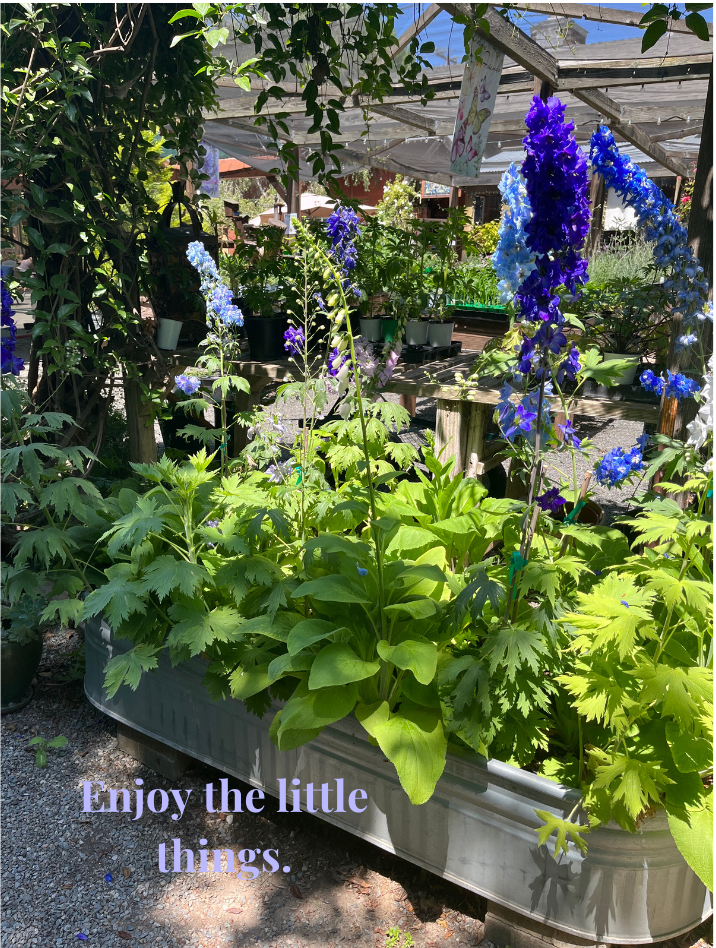
Gratitude holds significant benefits, offering a pathway to enhanced well-being and a deeper connection with ourselves and others. As we navigate the complexities of daily life, cultivating gratitude can be a powerful tool for nurturing resilience and fostering positivity. This month, let's embark on a journey of self-discovery and growth as we explore the transformative power of gratitude.

Embarking on the path to emotional well-being involves a mindful process of self-nurturing. Start by welcoming what fosters a sense that your needs are met. Tune into your inner reservoir of determination and capability. Gift yourself simple pleasures, whether it's warm handwashing, savoring an apple, or immersing in soulful music. These acts trigger the release of natural opioids, soothing the stress machinery in your brain. Find moments to reflect on aspects that evoke gratitude or joy, cultivating a gentle smile. Establish connections, either wit h someone you cherish directly or through the vivid canvas of your imagination. Allow the warmth of care to envelop you while acknowledging the kindness residing within your own heart. Identify thoughts and perspectives that are not just accurate but also beneficial. Immerse yourself in the sense of transitioning into a responsive mode. Renowned psychologist Rick Hanson introduces a transformative practice: "When it feels right, after releasing negative emotions, replace them with something positive." So, once we let go of something no longer serving us, it's essential to replace that space with something positive. If you'd like to learn more about letting go, this blog will help: https://www.thrivewithmindfulness.com/letting-go-for-a-brighter-tomorrow-the-art-of-releasing-what-no-longer-serves-you. Recall moments of appreciation for someone in your life and linger with that experience for ten or twenty seconds. This simple act, beyond immediate upliftment, triggers a profound change in your brain, termed experience-dependent neuroplasticity. Dwelling in positive experiences forges new neural pathways, effectively "hardwiring happiness" into your brain. In Rick's words, "mental states become neural traits." Consistent practices like relaxation bolster genes that mitigate stress reactions, enhancing resilience. Conversely, perpetuating negative mental states can mold your brain towards heightened reactivity and susceptibility to anxiety and depression. This creates a narrowed focus on threats and losses, fostering inclinations towards anger, sadness, and guilt. In this journey towards emotional well-being, the key lies in consciously cultivating positivity, recognizing its transformative impact on your immediate state of mind and the very structure of your brain. Need More Support? I offer a FREE mini-course called, 'Crafting The Family You Want', which is a great place to start. It offers a general explanation of how mindfulness and neuroplasticity work hand in hand to help you slowly make changes in how you regulate your own emotions, and this will help you to model emotional regulation strategies to your child. If this resonates with you, I invite you to sign up for the mini-course! It's self-paced, online, and will be delivered directly to your inbox once you've enrolled. With love, Traci PS- Need a little more information about the mini-course first? The picture on the right has more details!

Embarking on a journey of self-discovery often involves the art of letting go. Rick Hanson, in his book "Resilient," offers profound insights into how we can liberate ourselves from thoughts and feelings that hinder our well-being. Let's explore the different ways he suggests for letting go and paving the way for a more resilient and enriched life. Shift into Letting Go Begin by understanding that reactive thoughts and feelings rarely serve our best interests. Take time to discern whether to hold onto or release them. If you read January’s blog about letting things be, you might have a list of things that are not serving you which you can use for this exercise. First, slowly exhale, allowing your body to relax. Allow yourself to be with your feelings first, and then let them flow. Cry, yell, or grumble with a friend, or simply let the negative emotions drain away. Challenge assumptions, expectations, or beliefs that contribute to worry, stress, frustration, or anger. Be mindful of leaving the reactive mode. Record what you've let go of, and if safe, symbolically burn the list. Letting Go in the Body Our bodies play a crucial role in processing and releasing stored thoughts and emotions. One simple yet powerful technique is to tune into our breath, placing emphasis on the exhale as a symbol of letting go. Alternatively, you can mindfully observe your breath, cultivating a profound awareness of your entire body. Strengthening the exhale by engaging the diaphragm effectively releases pent-up tension. Additional methods include Heartmath (maintaining equal inhalation/exhalation through the heart with positive emotion), scanning and consciously releasing tension, progressive relaxation, and utilizing imagery to induce a state of deep relaxation. Letting Go of Thoughts Correct fundamental errors in thinking, systematically argue against thought errors, identify and address sub-personalities generating errors. Invite any thoughts that are not serving your greater good to go. Letting Go of Emotions Consider embracing self-compassion. Begin by acknowledging, naming, and accepting your emotions. Take the step of consciously choosing how to respond to them. Visualize these emotions departing with each exhalation, allowing a symbolic release. Engage in imagery, perhaps envisioning yourself standing in a refreshing mountain stream. For a cathartic release, vent your emotions safely, either through expressive writing or engaging in physical activities. Lastly, nurture a sense of positivity, allowing affirmative feelings to gradually replace the negative ones. Letting Go of Wants Utilize methods for releasing emotions, recognize underlying positive wants and respond, rationally analyze desires and choose what makes sense, reflect on the suffering embedded in most desires. Letting Go of Self Observe and reduce self-centered experiences, understand the constructed nature of the self, recognize that others' upset is often not about you, reflect on interconnectedness with everything, question whether what you want to let go of is truly you. General Methods for Letting Go Say goodbye to what you want to release, acknowledge the peaceful awareness that remains when you let go, accept and surrender to existing facts, embrace the wholesome to crowd out the unwholesome, be the awareness of the experience, not the experience itself, notice that all experiences change. By incorporating these practices into your life, you open the door to a more resilient, aware, and fulfilled existence. Begin your journey of letting go and embracing the abundance of life with an open heart and mind. Need More Support? I offer a FREE mini-course called, 'Crafting The Family You Want', which is a great place to start. It offers a general explanation of how mindfulness and neuroplasticity work hand in hand to help you slowly make changes in how you regulate your own emotions, and this will help you to model emotional regulation strategies to your child. If this resonates with you, I invite you to sign up for the mini-course! It's self-paced, online, and will be delivered directly to your inbox once you've enrolled. With love, Traci PS- Need a little more information about the mini-course first? The picture on the right has more details!
